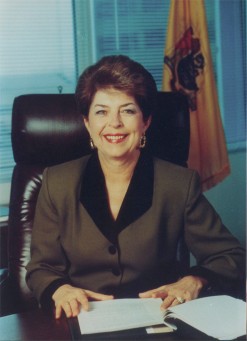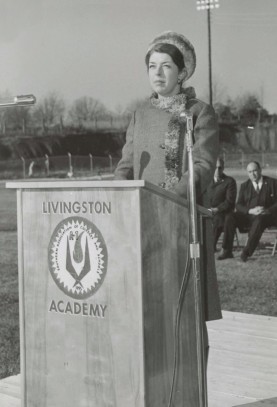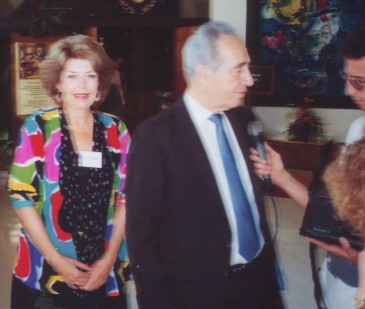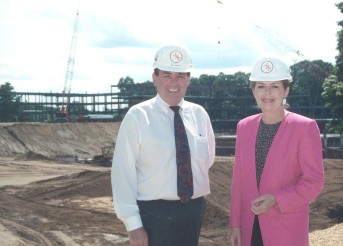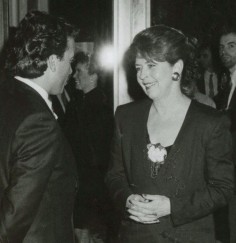|
During
the years I worked beside her, I knew she had three children, two of whom
were older than I was: John Kelly and Barbara, and one who was younger,
Joel Douglas. I remember seeing her daughter, Barbara, from time to time,
but I was never personally acquainted with her while I was growing up. It
was not until just the last five or six years that I’ve gotten to know
Barbara, and only just recently learned what an outstanding political
career she has had.
Mildred,
whose maiden name was Willeford, grew up in the Bangham Community of
Putnam County, and married Carson Wright, whose family lived in Hilham.
Mr. Wright was in construction work, and it was under his direction and
skilled craftsmanship that a great many of the courthouses, hospitals,
post offices, government buildings, and TVA projects were built in
Tennessee.
When the
two older Wright children were very small, his work took them to live in
Panama and in Cuba. John Kelly was enrolled in first grade and Barbara in
kindergarten while they were living in Panama. Since their parents were
not in the military, the Wright family lived in the Canal Zone, but
children were allowed to attend an American school for American citizens.
While in Cuba, Mr. Wright was working on a project at Guantanamo Bay Naval
Base, and built the air base in Panama. They were on board a ship headed
back to the United States on December 7, 1941 – the day Pearl Harbor was
bombed. Their ship was ordered to turn around until it was determined to
be safe to sail into Cuba. They were then able to obtain flights on Pan
American Airlines into the safe harbor of Miami.
In 1939,
and prior to moving away from Livingston, Mr. and Mrs. Wright bought the
home on Henson Street in Livingston that Mr. Wright’s mother lived in
while the family was away on construction jobs. That house was bought from
Hack and Marie Roberts, who had two small children: Carole Ann and John.
Following the completion of the work in Panama, the family returned to
their home in Livingston. Their son, Joel, was born in 1950.
Barbara
described the Henson Street neighborhood as an ideal place to grow up. The
small town atmosphere of Livingston was a safe and secure place to raise a
family, and it was from a loving, caring family and childhood that Barbara
says laid the foundation and gave direction to what the years ahead held
in store for her.
The
children who lived in the Henson Street neighborhood were Bill Winningham,
Tom and Bill Davis, Jim Sid Mathis, Gene Smith, and John and Carole Ann
Roberts. These children spent a lot of time playing together, and in the
summer months, they shared nearly every day with each other. Their days
were filled with roller skating, riding bikes, or just being together.
One of
the games the boys liked best was playing army, a game Tom Davis
especially enjoyed. One day he dug a boobie trap in order to capture John
Kelly as he walked home from school. But playing army was one game the
boys didn’t allow Barbara to join, so she went crying to her mother
because she was left out. Her mother had the remedy for that – she made
her a Red Cross apron and cap, and when Barbara went back outside proudly
wearing the cap and the little white apron with a big red cross in the
center, she was allowed to care for their wounded.
Another
game Tom Davis loved was playing Tarzan. Barbara knew it was time to get
up when she heard the “call of the wild” from Tom as he stood on the
sidewalk near her house on some mornings.
|
